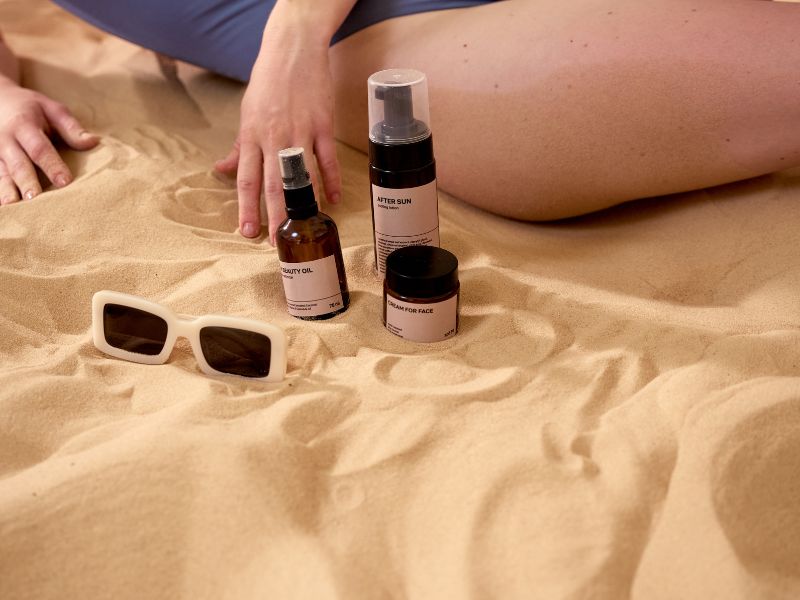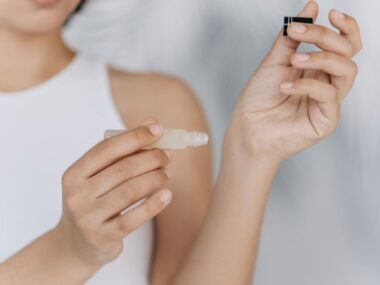Sunscreen is an essential component of skin health and protection against the harmful effects of ultraviolet (UV) radiation from the sun. While most people are aware of the importance of sunscreen, there remains a significant gap in knowledge regarding who should use it, how often, and what type is most effective. This article will delve into the importance of sunscreen, the groups of people who should prioritize its use, and some best practices for choosing and applying sunscreen effectively.
Table of Contents
ToggleUnderstanding UV Radiation and Its Effects
Before exploring who should use sunscreen, it’s essential to understand the type of UV radiation that can affect our skin. There are two primary types of UV radiation that reach the Earth:
- UVA (Ultraviolet A): These rays penetrate deep into the skin and are primarily responsible for skin aging and wrinkles. They can also contribute to skin cancer development.
- UVB (Ultraviolet B): These rays are responsible for sunburn and play a significant role in the development of skin cancer. They are more intense during the summer months and at higher altitudes.
Both UVA and UVB rays can damage the skin and increase the risk of skin cancer. This makes the use of sunscreen vital for anyone exposed to the sun, regardless of skin type, geographic location, or weather conditions.
The Importance of Sunscreen
Sunscreen is designed to protect the skin from the damaging effects of UV radiation. The benefits of using sunscreen regularly include:
- Reducing the Risk of Skin Cancer: Studies have shown that regular use of sunscreen can significantly lower the risk of developing skin cancer, including melanoma, the deadliest form of skin cancer.
- Preventing Premature Aging: Sunscreen helps protect against photoaging, which includes wrinkles, fine lines, and hyperpigmentation, all of which are exacerbated by sun exposure.
- Avoiding Sunburn: Sunscreen protects the skin from painful sunburns, which can have both immediate and long-term effects on skin health.
- Maintaining Even Skin Tone: Regular use of sunscreen can help prevent dark spots and discoloration caused by sun exposure.
Given these benefits, it’s crucial to understand who should prioritize sunscreen use.
Who Should Use Sunscreen?
- Everyone, Regardless of Skin Type
While individuals with fair skin are often thought to be at higher risk for sun damage, sunscreen is essential for all skin types, including:
- Fair Skin: People with light skin, freckles, or red hair have less melanin, which means they are more susceptible to sunburn and skin cancer.
- Medium and Dark Skin: Although darker skin has more melanin and offers some natural protection, it is not immune to UV damage. Individuals with darker skin can still suffer from sunburn and hyperpigmentation.
- Children and Infants
Children have delicate skin that is more sensitive to UV rays. The American Academy of Dermatology recommends that children over six months should use sunscreen regularly. For infants under six months, physical sun protection methods, such as clothing and shade, are advised, as their skin is too sensitive for most sunscreens.
- Outdoor Workers and Athletes
Individuals who work outdoors or engage in outdoor activities, such as construction workers, landscapers, and athletes, are at higher risk for prolonged sun exposure. These individuals should apply broad-spectrum sunscreen with a high SPF to protect against both UVA and UVB rays.
- Individuals Living in Sunny Climates
People who live in regions with high sun exposure, such as near the equator or at high altitudes, should prioritize sunscreen use. UV radiation is more intense in these areas, increasing the risk of skin damage.
- Individuals with a History of Skin Cancer
Those who have previously been diagnosed with skin cancer should be vigilant about sunscreen use. Regular application can help prevent recurrences and protect against new skin cancers.
- Individuals Taking Medications that Increase Sun Sensitivity
Certain medications, such as antibiotics, antihistamines, and some acne treatments, can make the skin more sensitive to sunlight. Individuals taking these medications should be diligent about applying sunscreen.
- Pregnant Women
Pregnant women should also use sunscreen, as hormonal changes can increase skin sensitivity and the risk of melasma, a condition that causes dark patches on the skin.
- Individuals with Skin Conditions
Those with skin conditions, such as eczema or rosacea, may experience exacerbated symptoms from sun exposure. Regular use of sunscreen can help protect sensitive skin and reduce flare-ups.
How to Choose the Right Sunscreen
Selecting the appropriate sunscreen is crucial for effective protection. Here are some key factors to consider:
- Broad-Spectrum Protection
Choose a sunscreen labeled “broad-spectrum,” which means it protects against both UVA and UVB rays.
- SPF Rating
The Sun Protection Factor (SPF) indicates the level of protection a sunscreen provides. Dermatologists recommend using a sunscreen with an SPF of at least 30, which blocks about 97% of UVB rays. For prolonged sun exposure, consider using a higher SPF.
- Water Resistance
If you plan on swimming or sweating, opt for a water-resistant sunscreen. These formulations are designed to remain effective for a specified period while wet (usually 40 or 80 minutes).
- Skin Type Considerations
- Oily or Acne-Prone Skin: Look for non-comedogenic, oil-free formulas that won’t clog pores.
- Sensitive Skin: Choose sunscreens with mineral ingredients (zinc oxide or titanium dioxide), as they are less likely to cause irritation.
- Dry Skin: Consider sunscreens that contain moisturizing ingredients, such as glycerin or hyaluronic acid.
- Application Method
Sunscreens come in various forms, including lotions, sprays, gels, and sticks. Choose a format that you find easy to apply and reapply. Lotion and cream formulas tend to provide more thorough coverage, while sprays can be convenient for reapplication.
How to Apply Sunscreen Effectively
Using sunscreen correctly is just as important as choosing the right product. Follow these steps for effective application:
- Apply Generously: Use about one ounce (enough to fill a shot glass) to cover the entire body. Don’t forget commonly missed areas, such as the ears, back of the neck, and tops of the feet.
- Apply Before Sun Exposure: Apply sunscreen at least 15 minutes before going outside to allow it to absorb and take effect.
- Reapply Regularly: Reapply sunscreen every two hours, or more often if swimming or sweating. If using a water-resistant formula, follow the instructions for reapplication.
- Use Makeup with SPF: While it’s beneficial to wear makeup that includes SPF, it shouldn’t replace your regular sunscreen. Use it as an additional layer of protection.
- Combine with Other Protective Measures: In addition to sunscreen, wear protective clothing, seek shade, and avoid tanning beds to further reduce your risk of skin damage.
Sunscreen is a critical tool in protecting your skin from the harmful effects of UV radiation, regardless of your skin type, age, or lifestyle. Everyone should incorporate sunscreen into their daily skincare routine to reduce the risk of skin cancer, premature aging, and other skin-related issues. By choosing the right product and applying it correctly, you can enjoy the outdoors safely and maintain healthy skin for years to come.
Conclusion
In summary, the question of “Who should use sunscreen?” has a clear answer: everyone. Sunscreen should be a non-negotiable part of skincare for individuals of all ages, skin types, and lifestyles. With the right knowledge and habits, you can protect your skin from sun damage and promote a healthier complexion. Make sunscreen a daily habit, and encourage those around you to do the same, as everyone deserves to enjoy the sun safely.






